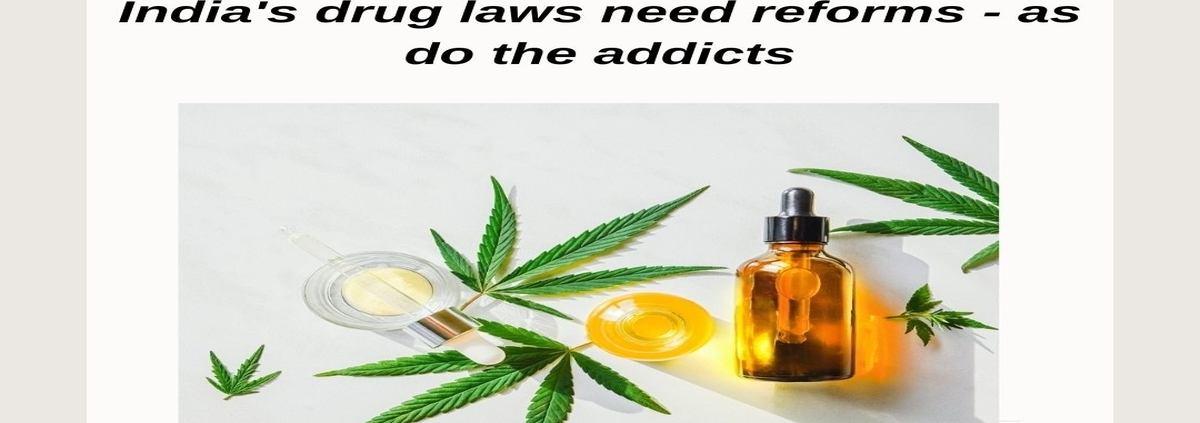Under the Narcotic Drugs and Psychotropic Substances (NDPS) Act, 1985, which is intended to combat India’s drug problem, about 59,906 cases were registered in 2020(1). Among the total cases, 33,246 were for possession of quantities below the threshold of “personal use”. And most importantly, out of the 14,340 cases that went to trial, a whopping 81% saw convictions — which is well over the conviction rate for murder and rape in India.
So, as I understand it, more than half the cases were unwarranted, let alone needing trial and convictions. Such inconsistencies are coming to the fore following the recent “circus” surrounding the arrest of Aryan Khan. In a country where gruesome murders and rapes continue unabated, is the media’s obsession over a 23-year-old’s alleged drug use justified? The entire machinery — investigating agencies, politicians, and media — is investing disproportionate time, money, and focus on an issue that pales in comparison to millions of cases that need hearings. What is becoming of our collective consciousness?
I ask because if a 23-year-old is an addict, he/she needs rehabilitation; not incarceration. Before we jump on the “attack-Bollywood” bandwagon, we should ask ourselves: What would we do if the accused in question are our children? Even speaking from the government’s viewpoint, multiple studies have established that the cost of jailing addicts is several times more than rehabilitating them. Yet, why has the regressive NDPS Act been amended only a measly three times since its inception?
Cannabis in India: A practice rooted in culture and history
India has nearly 5,000 years of recorded cannabis use(2), featured in Atharva Veda and Sushruta Samhita, among other revered compendiums. India’s ancient history is rife with references to cannabis as a sacred, medicinal plant. Even modern history has seen cannabis in a positive light, especially within the religious context. The ingestion of cannabis, in the form of “bhang”, is still commonplace across India. And it wasn’t until 1980 that it was classified as a psychotropic drug and criminalized.
The slippery slope to cannabis criminalization
Despite several studies substantiating cannabis’ potential in treatments of various physiological and psychological ailments, it has failed to elicit a policy re-visit. Whereas the use of alcohol and tobacco, despite their proven ill-effects compared to cannabis, continues to surge unchecked. According to a reputable study(3), cannabis is roughly 114 times less deadly than alcohol. Yet, in India, asking for drug laws to be more grounded in scientific research elicits anything from a social-media backlash to arrests, if recent developments are anything to go by.
The way forward
Policymakers must take stock of reforms in countries like Portugal. After decriminalizing drugs for “personal use” in 2001, Portugal has reduced drug-related deaths, HIV infections, and mafia activity, substantially. Simultaneously, addicts — without fear of legal consequences — are seeking help in large numbers. According to UNODOC(5), drug use in Portugal is well below the European average today.
There are no credible reasons to believe that India cannot emulate this. The 2018 amendment of the Sikkim Anti-Drugs Act to decriminalize recreational drug use is a good case in point. It directed the State to take necessary steps to treat drug addiction instead of criminalizing it. Even the Himachal Pradesh administration is contemplating a similar reform. On a broader scale, I welcome India’s recent vote in favour of the UN’s move to remove cannabis from the “most dangerous drugs” list. However, around the same time, many people — including celebrities — were subject to media and judicial trials for recreational use.
This is to say, India needs a concrete, consistent, national-level policy shakeup. About time policymakers understand that high-profile drug busts are only great for tabloids; not for long-term solutions. You cannot use a band-aid approach to highly complex problems like addiction. To this end, decriminalizing recreational cannabis use could be the first step in the right direction. Additionally, the government and the judiciary must facilitate an ecosystem geared towards addressing addiction with compassion. Perhaps it’s about time a special committee is set up to reevaluate the archaic NDPS Act and make provisions for decriminalization, rehabilitation, and punishments proportionate to the crime.
- https://www.thehindu.com/news/national/social-justice-ministry-for-decriminalising-possession-of-small-amount-of-drugs-for-personal-use/article37148042.ece
- https://www.psychologytoday.com/intl/blog/the-teenage-mind/201106/history-cannabis-in-india
- https://www.ncbi.nlm.nih.gov/pmc/articles/PMC4311234/
- https://www.unodc.org/documents/ungass2016/Contributions/Civil/Transform-Drug-Policy-Foundation/Drug-decriminalisation-in-Portugal.pdf



